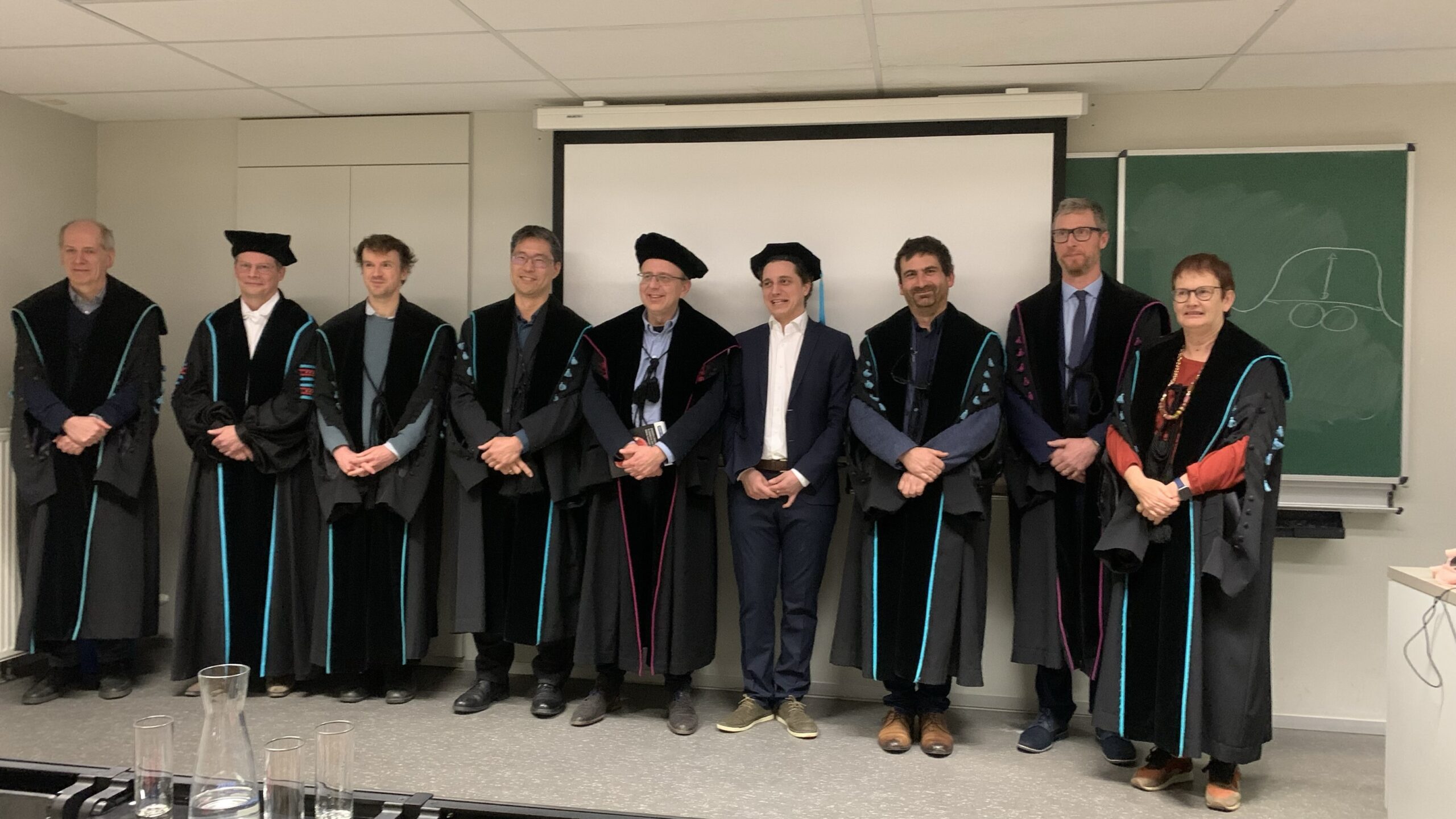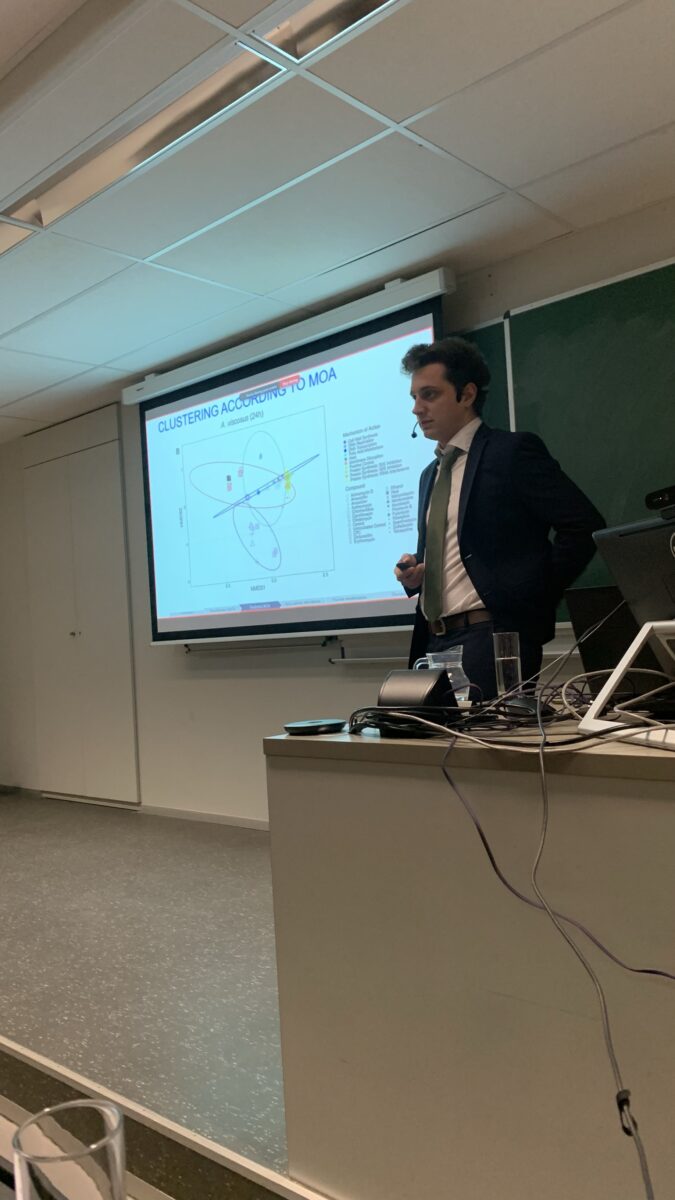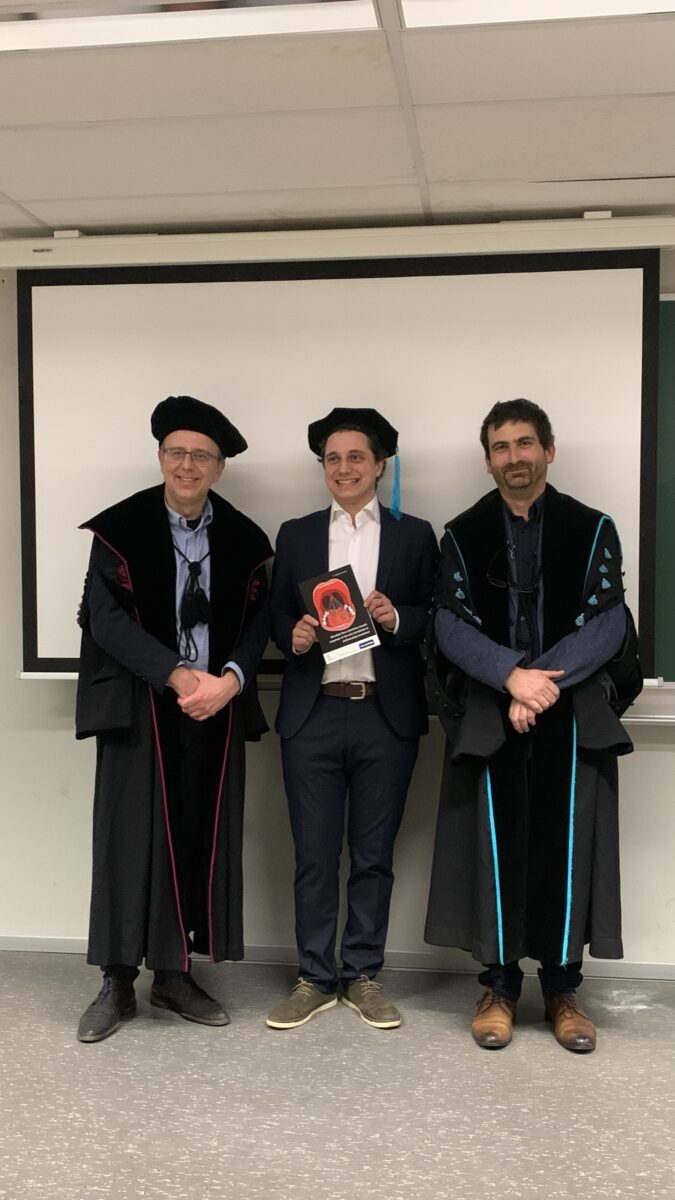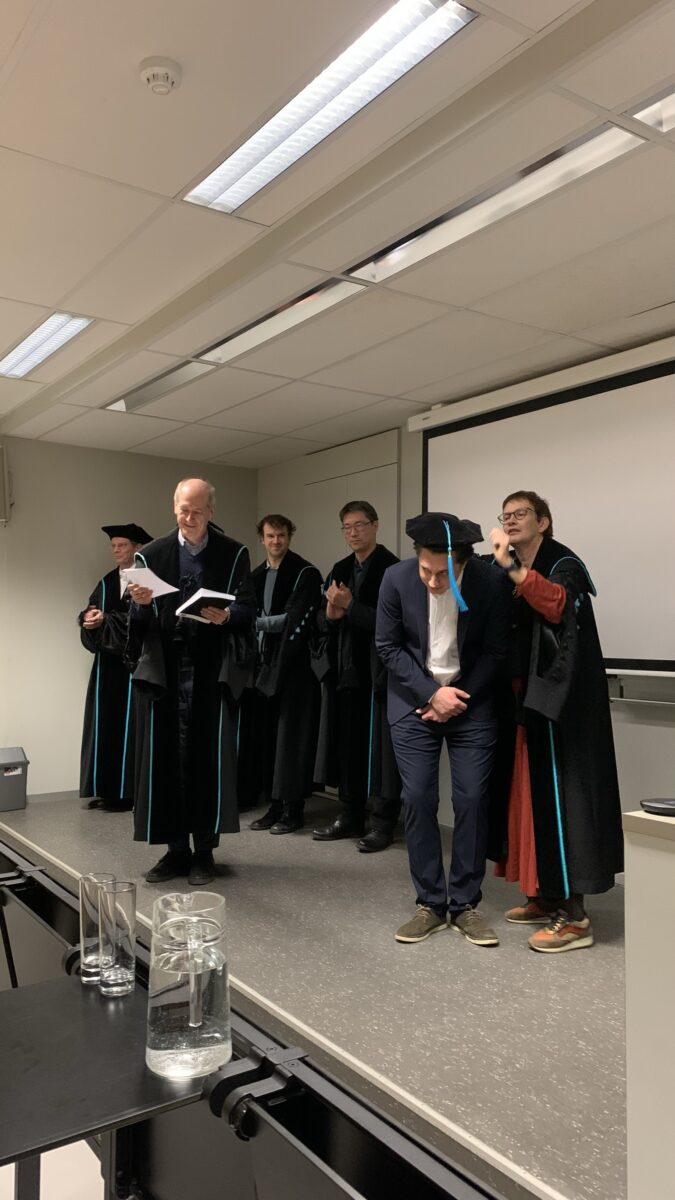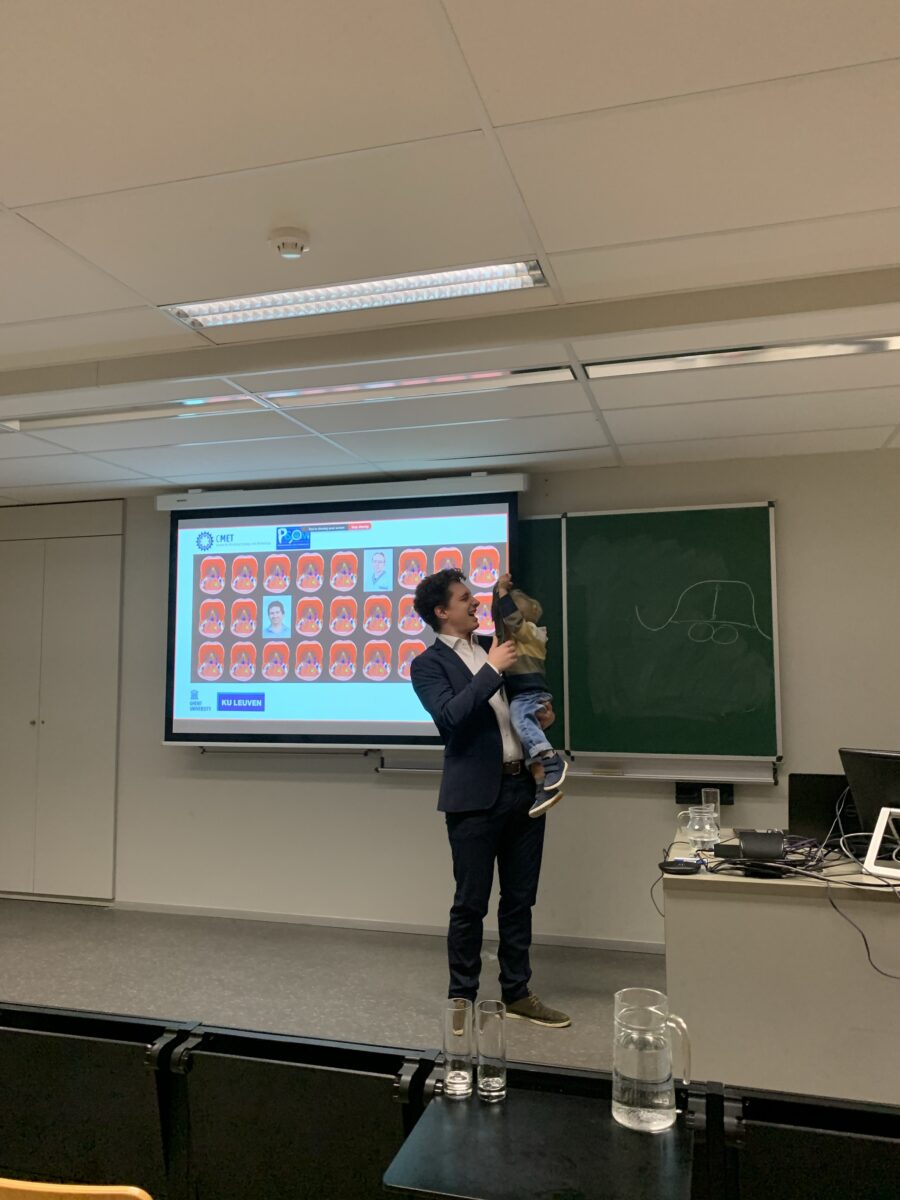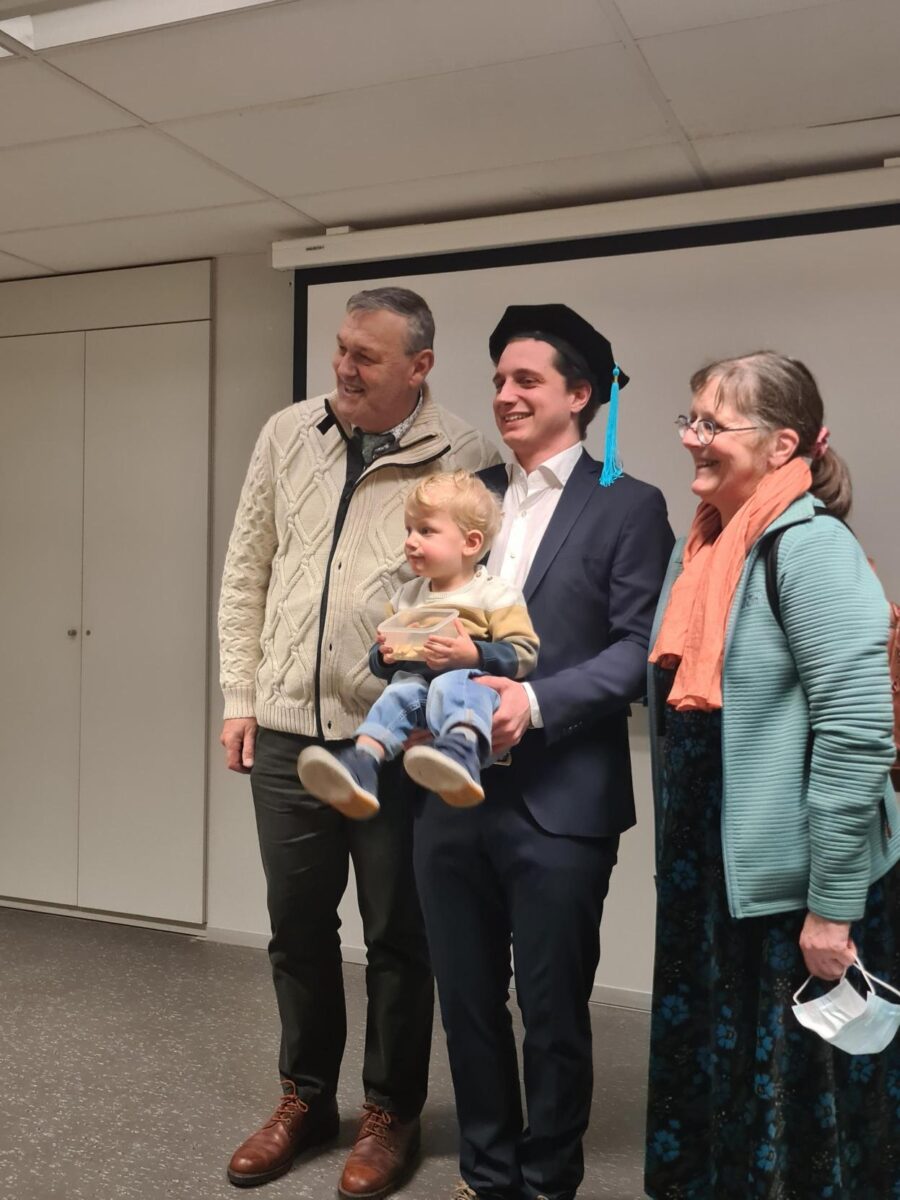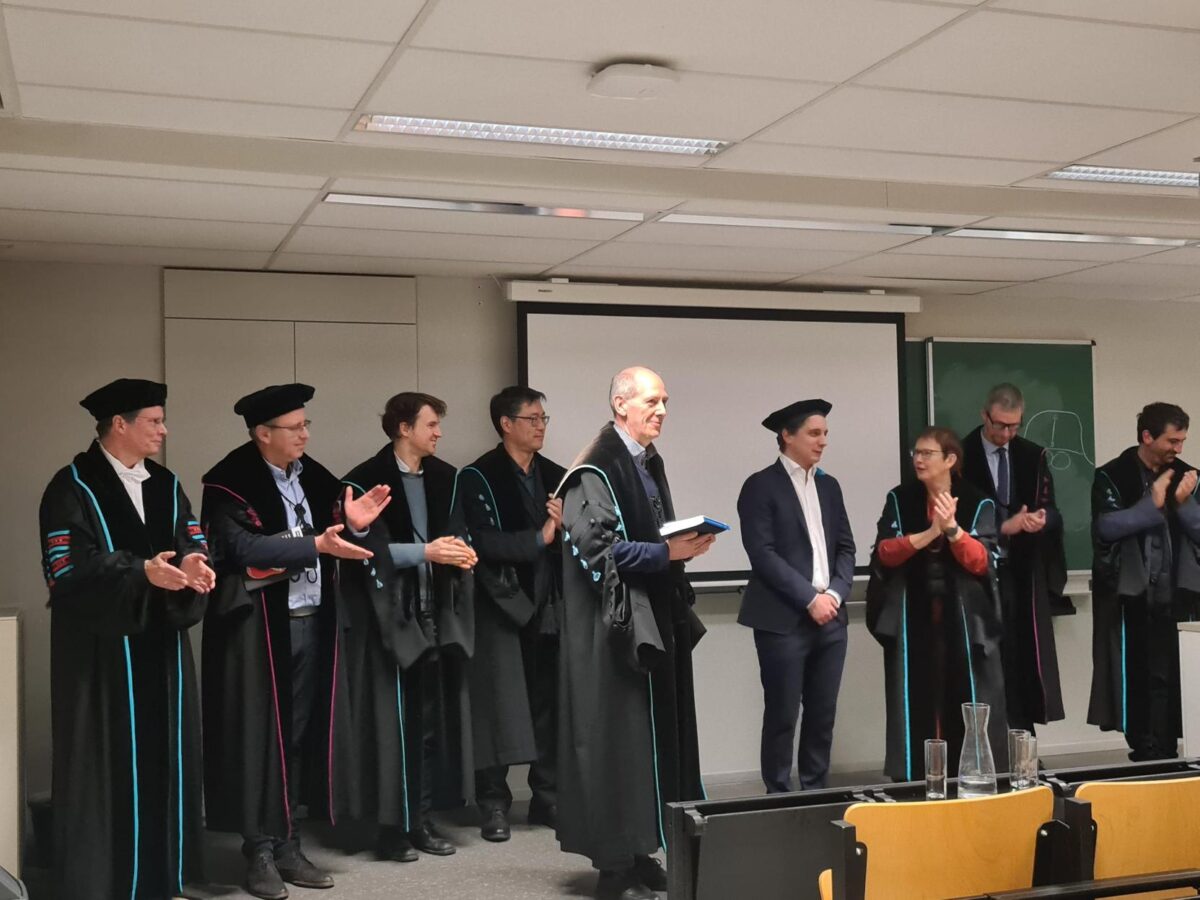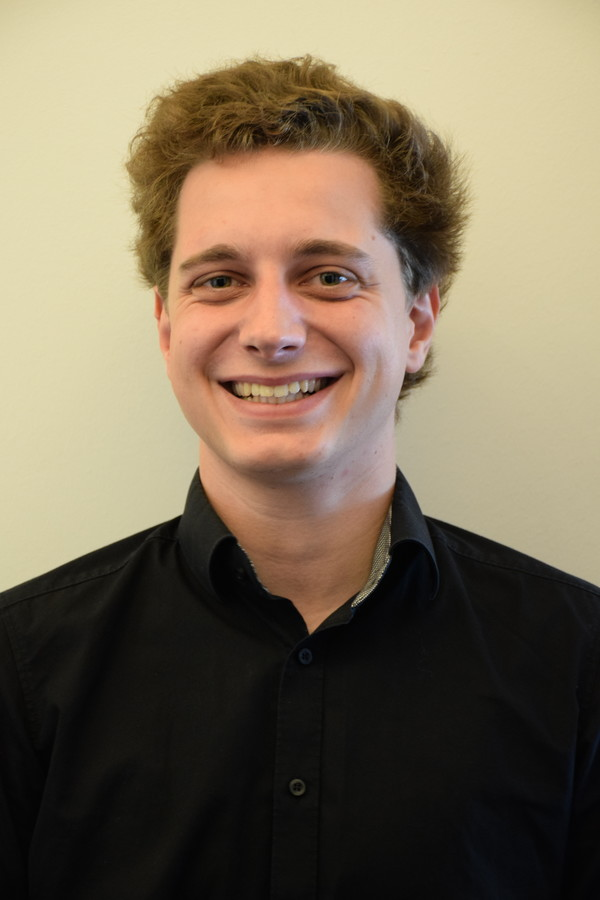
CMET and dissertation supervisors Prof. dr. ir. Nico Boon and Prof. dr. Wim Teughels proudly presents the public defence of the doctoral dissertation of Ir. Fabian Mermans. The title of the doctoral dissertation is “Microbial flow cytometry reveals responses of the oral microbiota to antimicrobial treatment” – “Microbiële flow cytometrie onthult de reactie van de orale microbiota op antimicrobiële behandeling”. The publice defence will take place on Thursday the 23rd of January 2025 at 17:00 in the Auditorium E2 at Campus Coupure, Coupure Links 653, 9000 Ghent.
A short abstract of the doctoral research
The oral microbiome is a highly diverse microbial community that varies greatly between individuals. Under certain circumstances a healthy microbiome can get disturbed enough so that dysbiosis and the onset of disease occurs. Oral diseases are commonly treated with antimicrobials which are effective at alleviating clinical manifestations. Nonetheless, they can further unbalance the microbiome. The current state-of-the-art is lacking knowledge on the role of the oral microbiome in interindividual differences in response to antimicrobial treatment and focusses heavily on sequencing-based methods. However, it is important to consider the phenotype of the microbial community as it reflects its functionality and can provide clues on the response to treatment. Flow cytometry is an excellent technique for studying phenotypic heterogeneity in microbial populations and forms an interesting platform to explore in oral microbiology research.
This PhD thesis investigates differences in the response to antimicrobial treatment of the oral microbiota and explores possible applications of microbial flow cytometry in oral microbiology. The work shows that shifts in salivary microbiome composition are induced by different antimicrobials and that these changes are donor dependent. Furthermore, the dissertation demonstrates that microbial flow cytometry could be used for both mechanistic research and for differentiating individuals based on their response to antimicrobial treatment. This may open the door for tailored future oral care.
